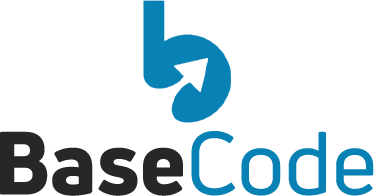Efficient inventory management is crucial for Nigerian businesses, whether in retail, manufacturing, or distribution. Without the right system in place, businesses face challenges such as overstocking, stockouts, and financial losses.
A robust inventory management solution helps businesses streamline operations, improve cash flow, and enhance customer satisfaction. But with so many options available, what should Nigerian business owners look for in an inventory management system?
This guide explores the top features to consider when selecting the best solution for your business.
Why Nigerian Businesses Need an Inventory Management Solution
Effective inventory management is not just a backend process—it’s a critical driver of profitability. Poor inventory management can lead to stockouts, excess stock, and inaccurate tracking, all of which directly affect cash flow and profitability. For example, research in the Nigerian manufacturing sector shows that inadequate inventory control often results in lower profits due to increased carrying costs and production disruptions.
Different industries in Nigeria face unique challenges:
-
Retail & E-commerce: In these sectors, inventory inaccuracies can lead to missed sales opportunities and dissatisfied customers. When products are either out-of-stock or overstocked, retailers risk both lost revenue and wasted capital. Accurate, real-time inventory tracking is crucial for online platforms to ensure prompt order fulfillment and customer satisfaction
. -
Manufacturing: For manufacturers, inefficient inventory management disrupts production schedules, resulting in costly downtime and reduced operational efficiency. Ensuring that raw materials, work-in-progress, and finished goods are accurately tracked means production can proceed without unexpected delays
. -
Logistics: In the logistics sector, proper inventory management minimizes handling errors and storage costs. By optimizing inventory placement and reducing manual processes, businesses can improve the speed and accuracy of deliveries, thus lowering overall operational expenses.
. -
Pharmaceuticals: The pharmaceutical industry requires precise inventory management to avoid shortages or waste due to expired products. Strict control over stock levels ensures that life-saving drugs are available when needed while minimizing the financial burden of overstocking
.
Automation plays a transformative role by reducing human error and increasing efficiency. Automated inventory management systems offer real-time tracking, automated reordering, and integration with barcode or RFID technology.
These features not only streamline operations but also significantly cut labor costs and improve accuracy, which in turn boosts profitability. For instance, studies indicate that automation can improve inventory accuracy by up to 35% and reduce carrying costs by as much as 30%.
>>You may also like: Best ERP software for Ecommerce and Retail Businesses<<
Key Features to Look for in an Inventory Management Solution
Here are some important features you must look out for in an inventory management solution:
1. Multi-Location and Multi-Warehouse Support
For businesses with multiple stores, warehouses, or distribution centers, a system that provides centralized inventory tracking across all locations is essential. This feature enables seamless stock transfers, real-time inventory visibility, and better decision-making.
2. Real-Time Stock Tracking
A good inventory system should provide real-time stock level updates. This allows businesses to track stock movements, monitor product availability, and reduce the risk of overstocking or running out of essential items.
3. Automated Stock Replenishment
Inventory solutions should include automation for stock replenishment. By setting reorder points and alerts, businesses can ensure they never run out of fast-moving items. Some systems even integrate with suppliers to automate restocking.
4. Barcode and RFID Scanning
Barcode and RFID technology enhance inventory accuracy and speed up stock management processes. Businesses can scan items for quick check-in/check-out, reducing manual errors and improving efficiency.
5. Integration with Accounting and Sales Platforms
For seamless business operations, the inventory management system should integrate with accounting software (e.g., Zoho Books, QuickBooks) and sales platforms (e.g., Shopify, WooCommerce). This ensures that inventory updates reflect in financial reports and sales channels.
6. Cloud-Based Access and Mobile Support
With many businesses embracing remote work and on-the-go operations, a cloud-based system with mobile access is a must-have. This allows business owners and managers to monitor inventory from anywhere using smartphones or tablets.
7. Customizable Reporting and Analytics
A powerful inventory solution should offer detailed reports on stock levels, sales trends, and supplier performance. These insights help businesses make data-driven decisions to optimize stock levels and improve profitability.
8. Multi-Currency and Tax Compliance Support
For businesses dealing with international suppliers and customers, multi-currency support is essential. Additionally, compliance with Nigeria’s tax regulations, such as VAT calculations, should be integrated within the system.
9. Security and User Access Control
Inventory data is sensitive, so an ideal system should have robust security features. Role-based access control ensures that only authorized personnel can modify stock records, preventing unauthorized changes or fraud.
10. Scalability and Customization
As businesses grow, their inventory needs change. A scalable solution allows businesses to add more warehouses, products, or users without disruptions. Customization options enable businesses to tailor features to their specific workflows.
>>Read this too: Top 12 HR software in Nigeria that are Super Affordable and Effective<<
How to Choose the Right Inventory Management Software for Your Business
When choosing the right inventory or warehouse management software, you need to balance your company’s unique requirements with the capabilities of the system. Here are the key factors to consider:
Business Size:
-
Small Businesses: Often benefit from simple, cloud-based solutions that require minimal setup and training.
-
Larger Enterprises: May need more robust, customizable systems that integrate with other software (ERP, accounting, e-commerce, etc.) and support complex multi-location operations.
Industry Needs:
-
Retail & E-commerce: Prioritize real-time tracking, multi-channel integration, and features like barcode scanning and mobile access.
-
Manufacturing: Look for systems that manage raw materials, work-in-progress, and finished goods, plus tools for production scheduling and quality control.
-
Logistics & Pharmaceuticals: Require features such as strict compliance, cold chain monitoring, and detailed reporting to avoid stockouts or overstocking.
Budget:
-
Evaluate the total cost of ownership, including initial setup, subscription fees, hardware investments (like barcode scanners), and ongoing support. A cost-effective solution should align with your financial constraints without sacrificing critical features.
Scalability:
-
Choose software that can grow with your business. Scalability is essential if you expect an increase in inventory volume, additional locations, or expanding operational complexity. The system should easily adapt to higher data loads and more complex workflows over time.
Free Trials and Customer Support:
-
Free Trials/Demos: They’re vital for testing the system’s ease of use, compatibility with your existing processes, and overall fit with your business needs before making a significant investment.
-
Customer Support: Responsive and knowledgeable support ensures you can quickly resolve issues and make the most of the software’s capabilities, which is especially important during peak business periods.
>>People like you also Read: Top 22 Help Desk Software & Ticketing Systems for every support team in 2025<<
Looking for an inventory management solution that meets your business needs?
Sources indicate that factors such as business size, industry-specific requirements, budget, and scalability, along with free trial options and robust customer support, are critical in making the right choice for inventory management software.
Nigerian businesses should prioritize features like real-time tracking, automation, integrations, and security when choosing a system. Investing in the right solution today will ensure long-term success and operational efficiency.
By carefully evaluating available options and selecting a solution that aligns with your business needs, you can streamline inventory operations and stay ahead in a competitive market.
Looking for an inventory management solution that meets your business needs? Contact us today for expert recommendations and tailored solutions.




0 Comments